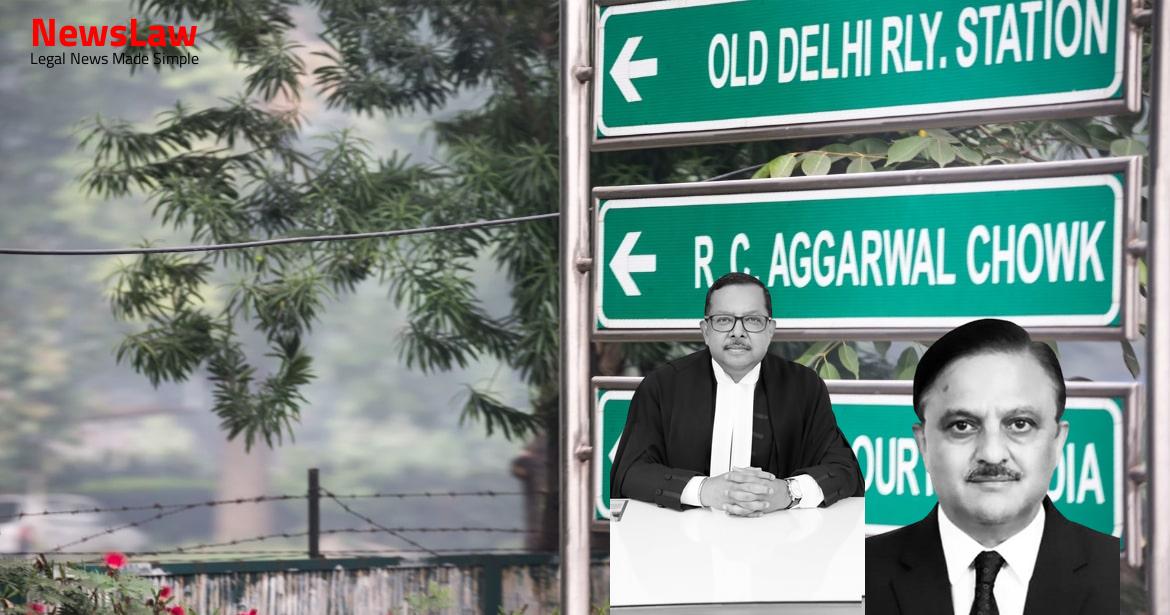In the case of State of Madhya Pradesh v. Udham and Others, a significant legal judgment was delivered by the Supreme Court of India. The judgment delves into the nuances of sentencing in cases related to fraud, forgery, and conspiracy. It sheds light on the evidentiary standards required for conviction and the assessment of roles within a criminal conspiracy. Let’s explore the implications of this judgment and its impact on future legal proceedings.
Facts
- Various facilities like Term Loan facility, Cash Credit Open Loan facility, Usance Bills facility, and Clean Endorsed Out-stationed Third Parties Cheques Discounting facility were extended at the instance of the accused.
- Forged receipts were produced with Out-stationed Bills Discounted (O.B.D.) and Bills Purchased (B.P.) totaling to Rs.6,02,160 by a fictitious firm M/s. Auto Parts Centre.
- Accused no.1, a public servant, managed to credit amounts to his sons’ account at the instance of accused no.2.
- Accused nos.4 and 5 presented fake transport receipts and bills totaling Rs.18,57,064.40 to avail credit facility from the bank.
- A complaint was lodged against accused no.4 and four others regarding fraudulently inducing the bank to advance Rs.30,93,300 through fabricated invoices.
- Accused nos.2 to 5 cheated the bank by making false representations and inducing it to the tune of Rs.18,57,064.40.
- The appellant was found guilty for offences under various sections of the Indian Penal Code and the Prevention of Corruption Act.
- Sentences imposed included two years of rigorous imprisonment for offences under S.120B read with S.161, 166, 420, 471 of I.P. Code and Prevention of Corruption Act, 1947.
- Additional sentences included two years of rigorous imprisonment with a fine for offences under sec.420, 420-120B of I.P. Code.
- Further sentences included one year of rigorous imprisonment with a fine for offences under S.471 read with S.468 of I.P. Code for the use of forged motor transport receipts.
- Appeal was dismissed by re-appreciating the evidence, confirming the original judgment and sentence imposed by the learned Special Judge, Ahmedabad.
Also Read: Legal Analysis on Deemed Tenancy of Evacuee Property
Arguments
- The appellant, accused no.4, worked as Chief Manager (Operations) for M/s. New Russian Automobiles and handled O.B.D. and B.P. bills on behalf of the firm.
- There is no direct evidence connecting the appellant to the alleged illegalities.
- The appellant’s role was in preparing invoices and bills as part of routine office work based on information from the factory and submitted to the bank.
- The appellant’s conviction is based solely on circumstantial evidence.
- The High Court and trial court erred in convicting the appellant without direct evidence.
- During the appeal process, the appellant faced challenges with notice reception due to the advocate’s elevation as a High Court judge and subsequent appointment of amicus curiae.
- Appellant was aware of the deception being carried out with the bank through inflated amounts in the O.B.D. bills.
- Appellant signed all the bills submitted with forged receipts to the bank.
Also Read: Fidelity Insurance Claim Dispute: Collateral Management Co. vs. Insurance Company
Analysis
- The appellant did not appoint a new advocate when the original one was elevated to the Bench, resulting in the appointment of an amicus curiae for the appeal.
- The appellant claimed the amicus curiae had previous associations with C.B.I. but this was not considered a valid ground for interference with the judgment.
- The findings of the trial court and High Court were found to be in line with the evidence on record supporting the prosecution’s case.
- Given the appellant’s employment in the accused firm and acknowledgment of the forged invoices, a modification in sentencing was deemed appropriate while upholding the conviction.
- The appellant’s guilt was proven beyond reasonable doubt in cheating and presenting fake invoices to the bank.
- The appellant knowingly participated in the deception of the bank by presenting fraudulent invoices.
- State of Madhya Pradesh v. Udham and Others provides clear guidelines for sentencing
- A.S. Krishnan & Ors. v. State of Kerala not helpful in the case at hand
- Judgments analyzed in relation to the facts and evidence of the case
- Factors such as the role of the accused and his position within the rank of conspirators were considered in sentencing.
- The appellant was a salaried employee and lower in the hierarchy within the firm.
- The sentence was modified to one year of rigorous imprisonment for multiple offenses under different sections of the Indian Penal Code and Prevention of Corruption Act.
- Various fines were imposed for different offenses, with default imprisonment specified for non-payment.
- Specific offenses related to the use of forged documents resulted in one year of rigorous imprisonment and fines, with default imprisonment for non-payment as well.
- Adjustments were made based on the circumstances and role of the accused in the crimes committed.
Also Read: High Court Restores Tribunal’s Compensation in Fatal Accident Case
Decision
- Appeal allowed in part to modify the period of sentence.
- The accused shall surrender within four weeks to serve the remaining period of sentence.
- If the accused fails to surrender, the State will take steps to take him into custody.
- The bail bonds of the appellant are cancelled as he was on bail.
- All sentences shall run concurrently.
Case Title: MAYANK N SHAH Vs. STATE OF GUJARAT
Case Number: Crl.A. No.-002298-002298 / 2010



